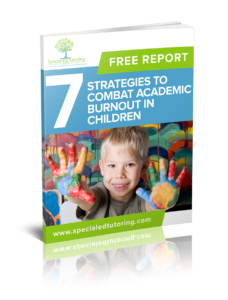Confidence is important in so many different aspects of life.
For children, they can quickly lose their confidence in school just by getting one wrong answer in the classroom in front of their peers, which quickly leads to academic burnout.
It is important to remind your child, that it is okay to make mistakes.
It is okay to not quite understand something and need some extra help! Providing your child with an opportunity to feel successful, whether it is answering a riddle correctly, or reading a story aloud to you, or even being successful with a homework assignment, is vital to helping with their self-confidence.
When a child is provided with the opportunity to feel success, rather than just continuously being challenged by academics, it will build their confidence tremendously.












